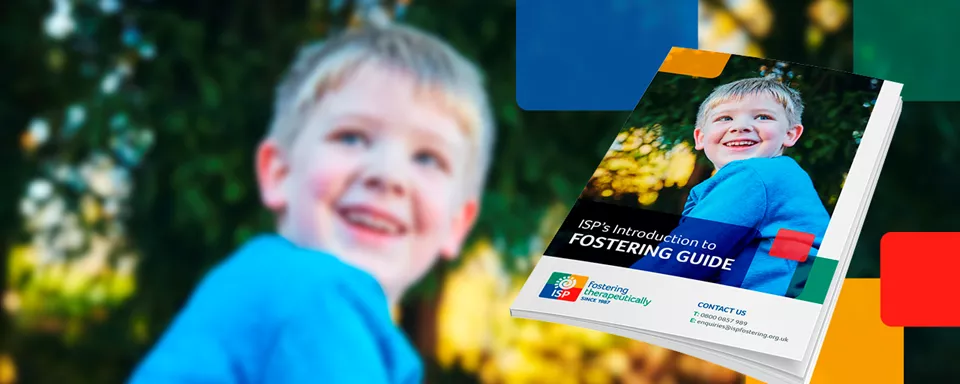Kate Middleton – former Duchess of Cambridge and current Princess of Wales – recently launched her new campaign Shaping Us, with the hopes of highlighting the critical role the first five years play in child development.
It’s a campaign that sits very close to our hearts, because at ISP Fostering, we work with some of the most vulnerable children in the UK who have sadly had very difficult starts in life. With more and more children entering the care system each year, largely due to having experienced abuse or neglect at a very young age, it’s clear more preventative measures are needed. That’s why we’re thrilled to see such a high profile, influential figure draw attention to an incredibly important topic.
As you can see, the campaign video demonstrates how important it is for a child to receive positive social interactions to help them understand everything from emotional regulation to sharing with others.
Early life for children in care – the impact of childhood trauma
There are many reasons why children are in care, but unfortunately, the main reason is because they’ve faced or been exposed to some sort of adverse childhood experience (ACE), often involving their birth parents or primary caregiver. ACEs can lead to long-lasting profound trauma that far extends into adulthood if left without the right therapeutic intervention.
Many of the young people we work with at ISP have come from unstable homes, where they were abused, neglected or mistreated by those who were meant to protect them. Experiencing this during the first few years can affect a child’s social, emotional, behavioural and physiological development. That’s because the brain is rapidly developing, absorbing information from every social interaction and sensory stimulus to make sense of the world. When a child is growing up with positive, secure relationships around them, they successfully learn how to regulate their emotions and respond to situations appropriately. When children grow up without a loving, affectionate caregiver, and their brain is repeatedly receiving distressing information (that’s caused by the caregiver or isn’t eased by the caregiver), their view of the world and sense of self will be greatly impacted, along with their ability to process or manage emotions.
Sadly, this is the case for most of the young people we see in care. They are often fearful, untrusting and have an overactive flight, fight, freeze or fawn response to protect themselves. Situations you might personally consider as only mildly stressful can trigger the same high levels of panic, anxiety or helplessness they felt at the time of their childhood trauma. This is why it’s common for children and teenagers in care to be widely misunderstood. We need more people to understand that a child’s experience of trauma is likely to manifest in their behavioural patterns and the way they are able to regulate and express their emotions. How they respond is not out of choice. It’s because their brain adapted to help them survive during a time of crucial growth due to abusive or absent parenting.
If you would like to understand more about how a child’s brain develops and how it responds to danger, as well as the long-term impact of trauma, then check out our infographic.
One study of children and young people in care found that 69% experienced neglect, 48% experienced physical abuse, 37% experienced emotional abuse and 23% experienced sexual abuse. (Chambers et al. 2010)
The impact of abusive or absent parenting on young children
Abusive and absent parenting can significantly impact the development of a child in all areas of their life. In some cases, it’s consciously inflicted. In others, such as a caregiver with drug or alcohol dependency, their own challenges mean they’re unfit to adequately parent.
Here are some examples of absent and abusive parenting:
- Physical neglect
- Emotional neglect
- Medical neglect
- Abandonment
- Substance misuse
- Chronic mental illness
- Physical abuse
- Emotional abuse
- Sexual abuse
- Domestic violence
- Being involved in community violence or gang culture
Young children desperately need positive attention and engaging, social interactions with their parent and the world around them. In a famous experiment named the Still Face Experiment, it’s clear that even babies as young as one year old will exhibit signs of stress when they stop receiving affection and interaction from their parent.
In the experiment, a mother and baby are playing, interacting and engaging with each other. The baby responds to the mother’s cues when she smiles, and the mother responds to the baby’s cues when she points at somewhere in the room, looking around and showing interest. They are coordinating their emotions and intentions with each social interaction. However, the mother is instructed to stop responding to the baby and simply stare at them with a blank, ‘still’ face. The baby tries to re-engage the mother by smiling, pointing, reaching out for a hug, but the mother remains unresponsive. During those two minutes of not getting the normal interaction from their mother, the baby has a negative emotional response and becomes incredibly upset and confused.
Pretty much every child will experience some form of discomfort from a negative or irregular social interaction. Fortunately for most though, their parents will soothe them and restore their sense of the world.
However, for children with absent or abusive parents, they don’t often get to experience that sense of normalcy again, or if they do, it’s extremely inconsistent and sporadic. They aren’t soothed or comforted when they ought to be. They are generally left in a prolonged state of fear, anxiety and helplessness.
Breaking the cycle by building healthy relationships
A key area in helping children in care grow, thrive and reach their full potential is relationship building. When a child comes into our care, relationships they’ve had with adults around them are likely to have been extremely poor and fractured. This can make them cautious about forming new attachments; perhaps out of fear it won’t last and they don’t want to experience loss again, or perhaps due to a lack of trust in authority figures. Every child is different and responds to trauma in their own way, but one thing remains the same – all young people need solid, secure relationships to help them heal.
That’s why at ISP we place every child at the centre of their own individual support system, made up of an integrated team of professionals who all work together to achieve the best outcome. From their foster parents and social workers to in-house therapists and educational advisors, we all work hard to ensure each child grows up with positive, trusting relationships with adults.

Light at the end of the tunnel
Despite having harrowing childhood experiences during their formative years, children are actually a lot more resilient than you think. They can overcome their pasts and lead happy, successful lives.
We help them achieve this with our pioneering approach to fostering; therapeutic fostering. It’s a specialist type of fostering designed to give an enhanced level of support to children with complex needs or a history of trauma. All of our foster parents receive extensive training in how to foster therapeutically, and our ethos is to look beyond behaviour and focus on the reasons behind it instead.
With the combined efforts of foster parents, our specialist fostering model and the amount of awareness the Shaping Us campaign will raise, we hope to see more young people getting back on track and reaching their full potential.
“My foster carers changed me – I don’t know how they did it. I’ve lived with them for over seven years and I’m treated like family!” – Ben, Young Person with ISP foster parents
Want to help transform a child’s life?
Becoming a foster parent is an incredibly rewarding career where you can make an extraordinary difference in a child’s life. If you’re thinking about fostering and want to know more, please get in touch today. Our expert fostering advisers will get back to you as soon as possible and answer any questions you have.

